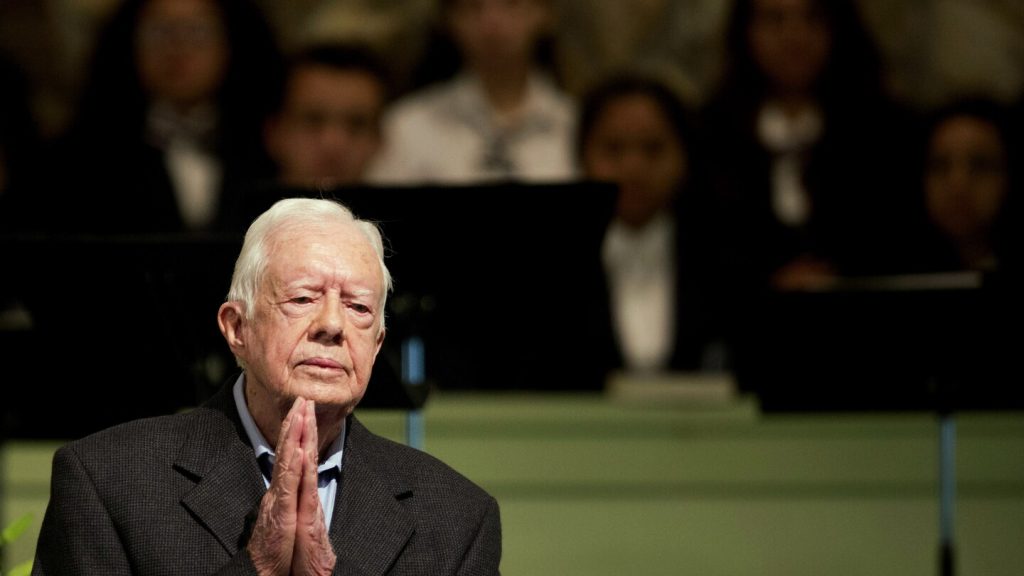Former President Jimmy Carter passed away at the age of 100 in Plains, Georgia. Before his presidency, Carter achieved a notable foreign policy achievement in brokering the 1978 peace deal between Egypt’s Anwar Sadat and Israel’s Menachem Begin. Carter attributed the success of the deal to the shared faith in the same God that he, Sadat, and Begin believed in, tracing their religious beliefs back to a common ancestor in each religion’s sacred texts.
Carter was known for his strong faith, which was evident in his post-presidency work on various charitable initiatives around the world. Throughout his political career, Carter differentiated himself by openly discussing his faith and connecting it to his policy pursuits. He quoted Jesus and famous theologians to explain his beliefs, demonstrating a unique approach to being a Christian in American politics compared to others who pursued power, while Carter sought to uphold the nation’s soul.
As a candidate in 1976, Carter described himself as a “born-again Christian,” which was unusual for a presidential candidate at the time. He used his presidency to elevate human rights, champion environmental conservation, and resist military conflict. Carter’s faith emphasized public service over politics, setting him apart from the growing secularism in the Democratic Party. Despite being an evangelical, Carter advocated for the absolute separation of church and state and held liberal stances on various social issues, including race relations, women’s rights, and LGBTQ rights.
Carter’s faith journey evolved over time as he engaged with different religious traditions and leaders. He shared his Christian principles with individuals like Bob Dylan and Chinese leader Deng Xiaoping, promoting freedom of worship and Bible ownership. Carter’s engagement with global leaders on matters of faith and diplomacy showcased his commitment to peace and understanding between different cultures and religions. His willingness to openly discuss his faith in political and global contexts provided inspiration for many, regardless of their political beliefs.
In his later years, Carter took a more progressive stance on LGBTQ rights, denouncing the Southern Baptist Convention’s views on women and ultimately disaffiliating from the denomination. He embraced inclusivity and equality in his faith, reflecting on Jesus’s treatment of women as equal to men. Carter’s journey to embracing differing views on various social issues demonstrated a willingness to evolve and adapt to changing societal norms while remaining true to his core values of compassion, peace, and service to others.
Carter’s legacy as a man of peace, compassion, and love continues to inspire many, including politicians like Pete Buttigieg, who sought Carter’s counsel during his own campaign. Carter’s simple faith in love and compassion, rooted in the teachings of Jesus Christ, guided his actions and decisions throughout his life. His approach to leadership, characterized by the question “What would Jesus do?” served as a guiding principle in navigating complex political and social issues, leaving a lasting impact on those who knew him and those who continue to be inspired by his example.


